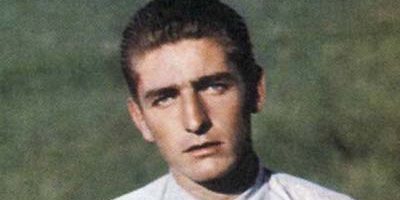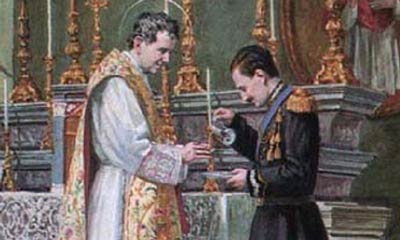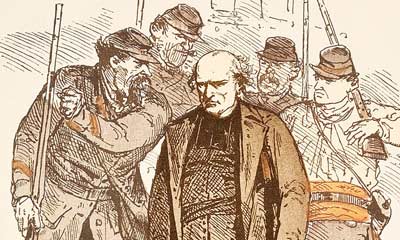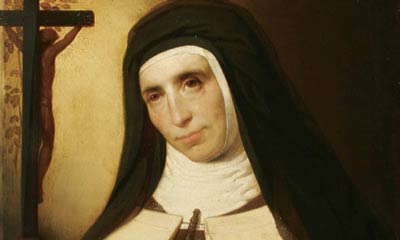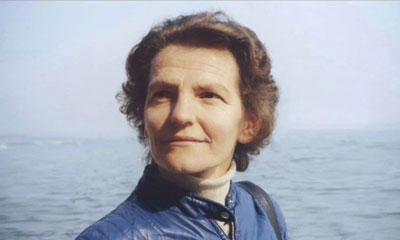August 28, 2024
Blessed Alberto Marvelli
Dear Friends,
“Alberto Marvelli has shown how, in the changing of times and situations, Christian laymen are able to devote themselves unreservedly to the construction of God’s Kingdom in family, work, culture and politics, taking the Gospel in the heart of society”, said Pope St John Paul II in Rimini in 1982. At the beatification of this young Italian who died prematurely in 1946 at the age of twenty-eight, the same Pope said: “Alberto had made the daily Eucharist the center of his life. In prayer he also sought the inspiration for political commitment, convinced of the need to live to the full as children of God in history in order to make it a history of salvation” (September 5, 2004).
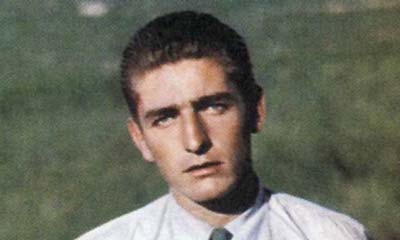 Alberto Marvelli was born on March 21, 1918 in Ferrara (Italy), the second child of a family of six. His father was Luigi Alfredo Marvelli, a bank manager in Rovigo who was also president of the local branch of the St Vincent de Paul Conferences. His mother, Maria, née Mayr, was of noble Bavarian extraction.
Alberto Marvelli was born on March 21, 1918 in Ferrara (Italy), the second child of a family of six. His father was Luigi Alfredo Marvelli, a bank manager in Rovigo who was also president of the local branch of the St Vincent de Paul Conferences. His mother, Maria, née Mayr, was of noble Bavarian extraction.
After moving house several times, the family settled in Rimini. Alberto was not yet fifteen when his father died suddenly of meningitis. The young man would later write: “I will never forget my father’s exemplary life, one lived with serenity and holiness even in the most difficult times. He was a Christian in the full sense of the word, with no half measures, no human respect, no ostentation; he was sincere, ever smiling, always secure in grace, serene… He always followed the wisdom of his conscience and did not hesitate to forsake honors and riches when obtaining them could only tarnish the clear transparency of his soul.” Gertrude, Alberto’s sister, later described Mrs Marvelli as an inexhaustible source of life and love, but she was also in a way the mother of all the children in the parish. She was a member of several Christian associations and became a local counselor at the end of the Second World War.
Alberto proved to be a brilliant pupil at school, even in the humanities, for which he had less inclination. He showed himself to be very mature at an early age and had a great deal of influence over his classmates. Impetuous by nature, he curbed his temperament with the help of his mother. When he was twelve, he joined the Catholic Action children’s group, and also attended the Salesian Oratory. The Salesians watched over the children with care, encouraging them in their games, correcting their faults with kindness, and establishing a life that was both peaceful and joyous. Their educational principle was “to make it morally impossible for young people to sin.” Alberto’s soul was deeply touched by the example of Dominic Savio (1842-1857), a pupil of St John Bosco who died at the age of fourteen and is now venerated as a saint. Alberto imitated his love of the Eucharist, his eagerness to serve and his smiling countenance. The Salesians turned to Alberto to run some of their activities, especially recreational ones. He loved music and set up a small orchestra. He taught the catechism, preferring to dedicate himself to disabled boys or those in difficulty.
“On this day,” he wrote on December 8, 1934 after receiving Holy Communion, “I consecrated my heart to Mary Immaculate so that She would keep it pure and immaculate like Her own.” From then on, his spiritual life was placed under the protection of the Virgin Mary: the invocation “My Mother, my trust” was constantly on his lips. He prayed the rosary every day, with his family or alone, and sometimes even when cycling.
Alberto loved all kinds of sport: tennis, volleyball, athletics, football, swimming and sailing, but his favorite was cycling. For him, sport was a way of reforming certain traits of character, of shaking off his laziness and strengthening his personality, but it was also a way of elevating himself towards God. In August 1935, he spent a month in the mountains. He was enthralled by the beauty of nature experienced first-hand. “The mountains!”, he wrote: “If I did not love God, I think I would come to love him by staying in the mountains. What peace, what serenity, what beauty: everything tells us of God… Only an infinitely great and merciful God could create such beauty!” From 1933 onwards, he kept a diary in which he recorded the aspirations of his life as a lay Christian. They are pages of intimate conversation with Jesus. “What are the pleasures of the world,” he wrote, “compared to the joy You bring to those who love You? What is pleasure, or make-believe enjoyment, compared with the pure and sublime well-being we experience in contemplating You and receiving You in ourselves, in our hearts? Less than nothing…”
Is Purity Difficult?
Alberto desired to guard his purity as a means of communion with God.
The Catechism of the Catholic Church states: “There is a connection between purity of heart, of body, and of faith… Purity of heart is the precondition of the vision of God. Even now it enables us to see according to God, to accept others as ‘neighbors’; it lets us perceive the human body—ours and our neighbor’s—as a temple of the Holy Spirit, a manifestation of divine beauty” (nos. 2518-2519).
As a young man, Alberto asked himself: “Is it difficult to attain purity? It is difficult for those who believe they can achieve it with human means, but for those who draw their nourishment from the inexhaustible sources of grace and love, sustained by the Eucharist, meditation and the will, it is within reach… A pure heart tastes the joys of the soul, of intimate and continuous union with God, of contemplation of the Blessed Sacrament. A new world, made up of infinite perceptions of sweetness and power… has truly opened up for me through the contemplation of Jesus in the Blessed Sacrament!” Purity, lived out so resolutely and joyfully, was plain to see on his face. He felt no embarrassment in his relationship with young girls, but rather approached them with a healthy freedom of spirit, which is a sign of chastity. The struggle for purity did not suppress his sensitivity, but led him to grasp the true essence of love. In a beautiful prayer, he expressed himself as follows: “I turn to You, Father of mercy, so that You may keep my heart pure, white and resplendent. May the divine and supernatural light radiate from my heart, envelop it in its luminous halo, surround it with its heavenly perfume, shower it with living water and a vivifying dew, protect it from the darkness of the world and of sin, and defend it from the snares of the devil! Lead it to the most heroic virtues!”
After being prevented from entering the Livorno Naval Academy because of a slight degree of astigmatism, Alberto enrolled in the Mechanical Engineering Faculty at the University of Bologna, and continued his involvement in the work of St Vincent de Paul and the Italian Federation of Catholic University Students (FUCI). The aim of this Federation was to increase the commitment of Catholic students so that they could become a force for evangelization in the life of the country. Monsignor Giovanni Battista Montini, the future Pope Paul VI, himself led the FUCI in Bologna.
Because his family’s financial resources were not sufficient to pay for his education, Alberto, like many other students, had to work all summer. He would leave his family early in the morning without eating anything so as to be able to receive Holy Communion at a midday Mass, because of the Eucharistic fast that was in force at the time (not taking any food as of midnight). A teacher admonished him for doing too much, but the young man replied, with a candid smile: “For me, it’s a necessity!” He wrote in his diary: “O Jesus, Who read my heart, Whom I try to receive within me every day, Who see my efforts to love You so that Your holy and merciful presence may purify and sanctify my soul, help this poor sinner, who prostrates himself at Your feet to ask Your forgiveness, breathe into me thoughts that are pure, holy, benign and patient. Visit me with Your Cross, Jesus, Who are happy to help me carry it for the good of my neighbor and of my poor soul. Do not lead me into temptation, and make me keep my promises, which I constantly renew at Your feet. It is only with Your help, and that of the Virgin Mary and all the saints, that I will be able to work towards those luminous goals that I can sometimes glimpse, but which are so far, so very far away. I want to become a saint, O Jesus! Help me and help us!”
A Precise and Humble Plan
Alberto knew that holiness is a gift from God, but that it requires human cooperation. He therefore embarked on a precise and humble life plan: “Silence is the best way to sanctify oneself, to avoid talking nonsense and to commit fewer sins, to lower one’s pride, to exercise humility and patience, and to learn to converse with God. It is essential that I overcome my impatience and instead exercise loving patience and ardent charity towards all. Before I act, I must reflect on what I am doing… I must absolutely lose the habit of judging my neighbor, if I do not want to be judged by God. When judging is necessary, I must remember Christian charity, God’s mercy, and the particular conditions in which my neighbor finds himself. ‘Do not do to others what you would not have them do to you’: these are divinely wise words, which avert many an occasion of strife… With an invocation to the Sacred Heart of Jesus and to the Virgin Mary, I must drive away any impure thought or one that would even remotely obscure the whiteness of my soul. To curb the impulses of the heart and excessive sentimentality, I must always bear in mind the thought of Jesus on the Cross.” He also adopted a set of strict rules: “Get up as early as possible in the morning and at the time I have planned. Do half an hour’s meditation every morning and never neglect it, except in unforeseen circumstances. Half an hour a day of spiritual reading, perhaps even more. Attend Holy Mass every morning and receive the sacraments without fail, except in cases of force majeure. Normally I go to confession once a week and see the spiritual director very often. Daily recitation of the Holy Rosary and the Angelus at the stroke of noon” (September 22, 1938). In addition, he rarely smoked and was moderate with food and drink. Pier Giorgio Frassati (1901-1925—a student from Turin who died after dedicating his life to the apostolate, and who was beatified in 1990) was a model for him: “Oh, if I could but imitate him in his purity, his goodness, his charity, his piety. He imitated and followed Christ so well.” During his university years, Alberto read the Pope’s encyclicals and speeches. His meditations were taken from Dom Chautard’s The Soul of the Apostolate, The Imitation of Jesus Christ, Christ, the Life of the Soul and Christ in His Mysteries by Dom Columba Marmion (who was beatified in 2000).
Unutterable Joy
Pope Pius XI defined the Catholic Action as “the participation of lay Catholics in the apostolate for the defense of religious and moral principles, for the development of beneficial and healthy social action, under the guidance of the ecclesiastical hierarchy in order to restore Catholic life in the family and in society.” Alberto, who joined in 1933, held the position of youth president and subsequently became diocesan vice-president. He had a gift for listening to those who approached him. “As a young man in Catholic Action,” he wrote, “I have a pressing obligation to carry out the apostolate continually and in every place… The joy of the Christian apostolate is unutterable. Man is made to conquer, not physically but spiritually.”
The true apostle, the Second Vatican Council teaches, is not content to bear witness of his own way of life, he “looks for opportunities to announce Christ by words addressed either to non-believers with a view to leading them to faith, or to the faithful with a view to instructing, strengthening, and encouraging them to a more fervent life. ‘For the charity of Christ impels us’ (2 Cor 5:14)” (Decree Apostolicam actuositatem, no. 6).
Alberto also became active in other associations, in particular the ACLI (Catholic Association of Italian Workers), to which he gave the best of his energies, overcoming controversy and becoming a sign of cooperation and unity. However, he was convinced that apostolic action was not enough, and that a great deal of time must be set aside for prayer. He also wrote in his diary: “Overcome my major faults: laziness, overindulgence, impatience, curiosity and many others. Invoke the help of Jesus in each difficult moment.”
Italy entered the war on June 10, 1940. Alberto was drafted into a motorized infantry unit in Trieste. He noted: “National and international law must have a Christian foundation. The Gospel and the papal encyclicals must be the norm of life not only for individuals, but for peoples, nations, governments and the whole world.” The root cause of war, he wrote, “is our lack of love for God and man. The spirit of charity is lacking in the world, and so we hate each other as enemies instead of loving each other as brothers, all redeemed by Christ.”
Pope Pius XII had only just published his first encyclical, in which he stated: “The radical and ultimate cause of the evils which We deplore in modern society is the denial and rejection of a universal norm of morality as well for individual and social life as for international relations. The denial of the fundamentals of morality had its origin, in Europe, in the abandonment of that Christian teaching of which the Chair of Peter is the depository and exponent” (Summi Pontificatus, October 20, 1939).
Bold Witness to the Faith
As soon as he arrived in barracks, Alberto gathered together the members of Catholic Action and those who were ready to give bold witness to the faith, organizing formative meetings and attending Mass. One of his companions in the training platoon later remembered: “We often had to take turns at carrying the machine gun. On the bad mountain roads, this was really hard. When it was the turn of a physically less developed comrade, Alberto would move up to him and, before we knew it, the gun would have changed shoulders. Alberto would then quickly climb the slope, deposit the machine gun and resume his place in the ranks without waiting for a word of thanks.” He was soon demobbed, because three of his brothers were already at the front, and went on to join FIAT’s design department in Turin. His professional activities did not prevent him from completing his university education. On June 30, 1941, he graduated as an engineer with a grade of 90/100.
When the Germans occupied Italy in 1943, Alberto returned to Rimini. He joined the Workers’ Society, a lay association founded in Rome in 1942 with the aim of developing a devotional life centered on the mystery of Christ’s agony in Gethsemane. In late 1943 and early 1944, the city of Rimini was destroyed by bombing. Alberto always went wherever danger was present: he would walk through the smoldering debris, helping the wounded, encouraging the survivors, assisting the dying and pulling out of the rubble those who had been trapped or buried alive. Having been hired by a civil engineering organization, he was able to move around freely, providing assistance to those who had lost their homes and saving countless lives at the risk of his own. He even managed to open sealed wagons bound for the concentration camps, releasing all those inside.
Towards the end of 1944, his family and many others took refuge in San Marino. Alberto used all his time and energy to help everyone: he gave away everything he had, visited farmers and tradespeople, bought all kinds of food with his own money, and then rode his bicycle loaded with baskets to those who lacked everything. After the liberation of Rimini in September 1944, he became a member of the re-formed town council and was put in charge of public works (reconstruction, and later housing allocation). He did not yet belong to any party, but everyone recognized and appreciated his tremendous efforts to help those in need. His courage in the most challenging situations and his availability earned him widespread popularity. In more than one administration, it had become the custom to say when dealing with insoluble problems: “Go and see engineer Marvelli, he’ll surely find a solution!”
A Christian Vision of Culture
He went on to join the Christian Democrat Party. For Alberto, engaging in politics was the consequence of social charity. According to one of his friends, “He became involved and explained that he was doing so because he thought that, at that moment, working in the Party was the best way of exercising his apostolate; he added that he would leave politics the very day when working in the Party would no longer be of benefit to the Catholic world.” He also joined the Catholic Graduates group, which held its first meeting in September 1945; he accepted the post of president at the behest of his bishop. The group included lawyers, professors, doctors and judges; its actions were inspired by the Christian vision of culture and social life. For culture not to be the privilege of intellectuals alone, Alberto and the Graduates organized a popular university in the winter of 1945-1946.
Alberto was undecided between marriage and the priesthood. He had been in love with a young girl named Marinella for several years, but he had a profound respect for her freedom, and although she liked him, she did not respond to his overtures. He wrote her letters, several of which went unanswered. Already on August 24, 1939, he wrote in his diary: “Yes, thoughts cross my mind, thoughts about the direction of my future life, a direction which seems clear-cut to me, but which, at the same time, leaves me feeling unsure. In this too, Lord, enlighten me. However, I want to become a saint; to achieve this, I am willing to renounce all earthly dreams and affections, in order to be totally devoted to God.” Yet on July 27, 1946, he wrote another letter to Marinella, full of love and respect; there was no reply.
In the evening of October 5, 1946, Alberto was cycling through Rimini when he was hit by a recklessly driven military lorry. He lost consciousness and died a few hours later in the arms of his mother, who had rushed to his side. A priest was able to administer Extreme Unction. The next day, his body was laid in repose in the Salesian church. Hundreds of people came to pay their respects: the former Socialist mayor, politicians, administrators, friends and also the poor. His funeral took place on Tuesday, October 8. All of Rimini was present: it was not so much a funeral as a triumph! The coffin was carried by his friends from the church to the cemetery, followed by a procession that spanned over three kilometers.
Alberto was beatified on September 5, 2004 by Pope St John Paul II during the National Congress of Catholic Action at the shrine of Our Lady of Loreto. The Second Vatican Council states: “There are innumerable opportunities open to the laity for the exercise of their apostolate of evangelization and sanctification. The very testimony of their Christian life and good works done in a supernatural spirit have the power to draw men to belief and to God; for the Lord says, ‘Even so let your light shine before men in order that they may see your good works and give glory to your Father Who is in heaven’ (Mt 5:16)” (Decree Apostolicam actuositatem, no. 6). Let us ask God, through the intercession of Blessed Alberto, to give us the strength to perform good works that will draw people to the Lord!


